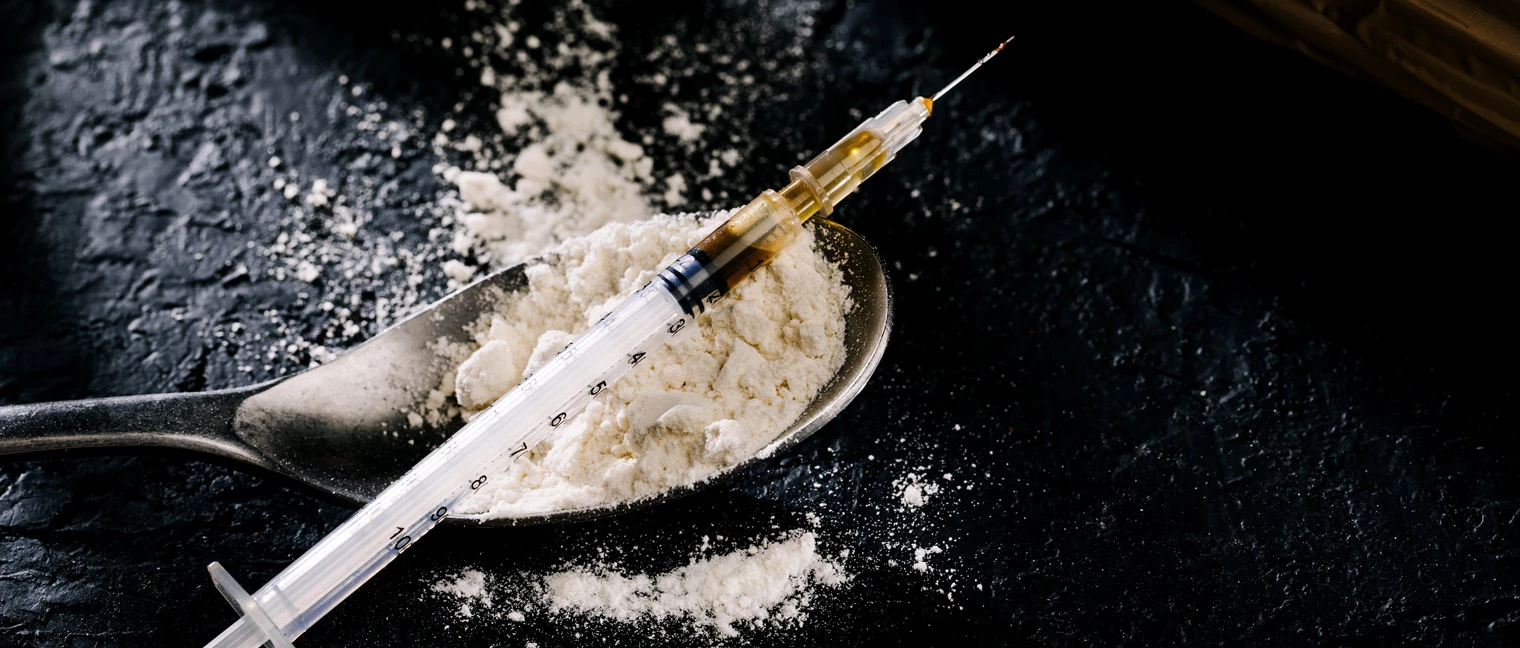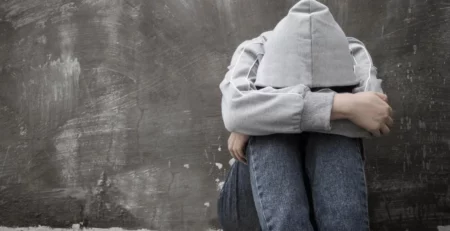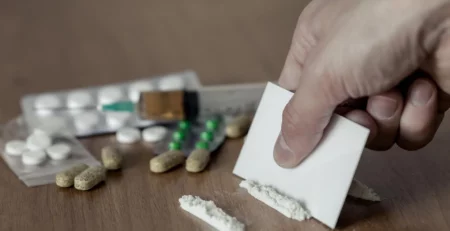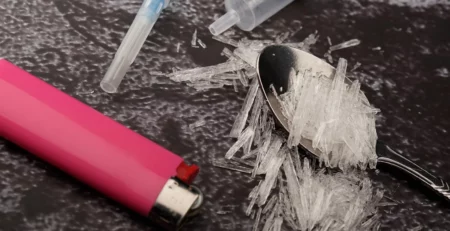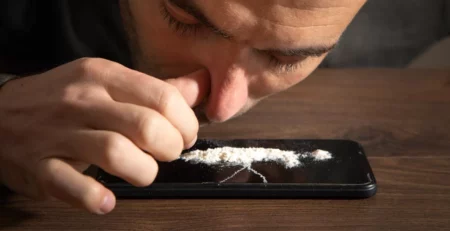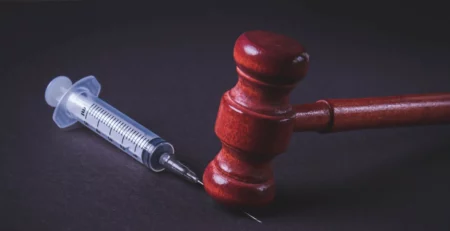How Long Does It Take to Detox from Heroin?
Looking at the Heroin Withdrawal Timeline for Recovery
Heroin addiction feels like one of the worst things a person can go through. Often, users stay hooked on the drug as they cannot bear to face the notoriously challenging withdrawal period.
If you or a loved one are struggling with heroin, you may already be very familiar with how difficult it can be to get off and stay clean, especially when the dope sickness hits hard.
But help can be found, here. Icarus in Nevada offers comfortable detox and treatment programs to support lasting recovery from opiates.
If you want to quit using heroin, the first question you are likely to have is “How long does it take to detox from heroin”? In this blog, we answer this question and give you plenty of info related to heroin detox.
Get Heroin Detox & Treatment Options – Call Now!
Overcoming Heroin Withdrawal With Detox
Heroin detox has much better long-term outcomes if you have support for your detox. At Icarus Behavioral Health Nevada, we offer all our patients a medical detox conducted by trained professionals. This keeps you safe and comfortable during your detox.
Keep reading for more information on how to overcome heroin detox successfully and for immediate help contact Icarus in Nevada today!
Overcome Heroin Withdrawal With Proven Support Programs

The withdrawal from heroin addiction can be painful enough to keep you trapped in a cycle of addiction, especially if you’ve been through it before.
But with a medical detox, you will be able to alleviate withdrawal symptoms from heroin, meaning the process is much easier to get through.
A Typical Heroin Detox Timeline
When talking about how long it takes to do a heroin detox, the answer isn’t as simple as you might think. The answer to “How long does it take for someone to detox from heroin?” depends on many factors, including how long you’ve been using the drug, your method of use, the state of your body and mind, and any underlying psychological symptoms you may have.
The withdrawal symptoms associated with coming off of heroin vary quite a bit from person to person. Usually, you can expect initial withdrawal symptoms to begin within 6-12 hours after the last dose of the drug and peak in intensity after three or four days. Symptoms typically include insomnia, anxiety, restlessness and muscle aches, nausea and vomiting, diarrhea, cold sweats, and severe cravings for more heroin.
How To Make Heroin Withdrawal More Manageable
These symptoms are often most difficult to manage during the first few days of the heroin withdrawal timeline. To make things more comfortable, you should make sure you have medical supervision from Icarus Behavioral Health and are supported during this time. This makes sure any physical or psychological pain you experience can be dealt with effectively, and that medication management (for those on medically assisted treatment) is carried out appropriately.
Once your initial symptoms have passed, the body slowly returns to normal and cravings usually decrease. However, the full heroin withdrawal timeline can take up to two weeks for some people before they start feeling like themselves again.
What Happens After Heroin Detox?
After a person has completed their heroin detox, there is still a lot of work to do in terms of recovering from addiction. Anger, depression, and anxiety are all common. This is where psychological therapies, such as cognitive behavioral therapy (CBT) and group support, can be very beneficial. These types of treatments help people address any underlying issues that may have contributed to their drug use in the first place and provide them with the skills and strategies they need to stay abstinent in the future.
Remember that there is no ‘one size fits all’ approach when it comes to detoxing from heroin. The best way forward is to discuss your individual needs and concerns with Icarus Behavioral Health. We can provide you with the personalized advice and support you need throughout every stage of the process.
8 Typical Symptoms Of Heroin Withdrawal

Understanding the signs of withdrawal and how to manage them can make a big difference when you are going through your healing process. Knowing what you will go through can help you to prepare. Remember that many of these symptoms can be reduced if you go through a medical detox program.
Here are 8 of the most commonly encountered heroin withdrawal symptoms to help you better understand what it looks like.
1) Restless Leg Syndrome
Restless leg syndrome (RLS) is one of the most common withdrawal symptoms experienced during heroin detoxification. It is an uncomfortable tingling sensation in your legs that encourages you to move to relieve the discomfort. This sensation is caused by an imbalance of certain neurotransmitters, such as dopamine, which can be triggered by the abrupt discontinuation of heroin.
RLS usually presents itself during periods of rest or inactivity and can make it difficult to sleep for prolonged periods. Heroin withdrawal may also cause muscle spasms. Walking or taking a hot bath can help if you have restless leg syndrome. Remember, it will get better, you just need to hold on.
2) Depression
Depression is one of the psychological symptoms associated with heroin addiction. Depression can develop both during active heroin use and after quitting, and can persist for months or even years.
The severity of depression varies from mild to severe. Symptoms of depression include feeling sad, lack of motivation, difficulty enjoying activities you used to enjoy, and sleeping too much or too little. Depression may linger even after you have been through the acute stage of withdrawal. Having support not just during the acute stage but also after is essential for keeping away from the blues.
3) Anxiety
Anxiety is another common symptom of heroin detox. This feeling of unease often manifests itself in physical symptoms such as rapid heart rate, muscle tension, and shortness of breath. Anxiety can also make it difficult to concentrate on tasks or even just carry out everyday activities.
If you are experiencing anxiety during the detox process, make sure you reach out for professional help from a mental health professional. Be aware that some doctors who are not familiar with addiction may try and prescribe drugs like Xanax – these are also addictive and can cause you to get trapped again in a cycle of addiction. We recommend that those with addiction think very carefully before using drugs like these to reduce anxiety. There are other ways.
4) Joint Pain
Joint pain is another common symptom of heroin withdrawal. It usually presents as a dull ache in the joints or limbs that may worsen with movement. This pain can range from mild to severe and may last for several weeks or months after quitting heroin. Pain management techniques such as stretching, massage, and hot/cold therapy can help alleviate the symptoms of joint pain.
5) Nausea
Nausea is another common symptom of heroin withdrawal and can range from mild to severe. It can be triggered by a variety of factors, including anxiety or dehydration. To help manage nausea during heroin detoxification, it is important to stay hydrated. You can also try drinking ginger tea, as ginger is known to keep nausea at bay. This may take a little of the edge off the nausea.
6) Diarrhea
Diarrhea is another common symptom of heroin withdrawal. It can cause discomfort and dehydration due to the frequent loss of fluids in your stool. It is important to drink plenty of fluids and eat foods rich in fiber such as fruits, vegetables, and whole grains to help mitigate diarrhea. Additionally, anti-diarrheal medications can also help reduce symptoms.
Like many heroin withdrawal symptoms, the worst of the diarrhea is usually over by day 4.
7) Panic Attacks

Panic attacks are another symptom of heroin withdrawal that should not be overlooked. They can occur suddenly without warning and can last anywhere from a few seconds to several minutes. Symptoms include rapid heart rate, feeling out of control or like you’re going to faint, chest pain or tightness, and nausea.
8) Psychosis
Psychosis is a rare but serious complication of heroin withdrawal that should be monitored closely. Signs of psychosis include disorganized or altered thinking, hallucinations, delusions, and paranoia. Heroin withdrawal psychosis is typically short-lived, but you should be monitored if you have experienced psychosis during heroin withdrawal in the past.
Confidential Heroin Use Assessment – Call Now!
Overcoming Heroin Withdrawal: Medication Assisted Treatment Options
Medication Assisted Treatment (MAT) can be an effective way to help someone struggling with heroin withdrawal from drug abuse. MAT can make it far easier to get through a heroin withdrawal.
Medication Assisted Treatment (MAT) is an evidence-based treatment that utilizes medicines like methadone or Suboxone combined with counseling and behavioral therapies. This type of treatment is designed to reduce withdrawal symptoms, craving, and the risk of relapse.
The medication itself does this by stimulating opioid receptors that were previously stimulated by short-acting opioids. As MAT is all long-acting, it is possible to gradually reduce the dose and eliminate many of the withdrawal symptoms you may have otherwise felt.
MAT can help ease physical you may experience from opioid withdrawal such as nausea, muscle aches, sweating, and insomnia. The medications in MAT can also help reduce cravings for the drug, which may lead to fewer relapse episodes.
How Long Does it Take to Detox from Heroin: Tips to Reduce Withdrawal Symptoms

Even the most common heroin withdrawal symptoms can be extremely difficult to manage, and the process can be incredibly uncomfortable.
Understand that there are a variety of methods available to help you get through the experience as comfortably as possible.
Hot Baths
A hot bath is a great way to soothe some of the physical pains associated with heroin withdrawal. The hot water helps to relax the body and increases blood circulation, which can help speed up the withdrawal process.
Additionally, a hot bath helps to reduce muscle tension and pain that often accompany opioid withdrawal.
Exercise
Exercise is also beneficial for managing heroin withdrawal symptoms. Not only does it help to reduce stress and anxiety, but it can also provide relief from physical symptoms such as muscle pain and aches. It is important to remember that while exercise will help with the physical symptoms, it is not a replacement for medical interventions or therapies.
Healthy Foods
Eating healthy food can also be helpful during heroin withdrawal. Eating nutritious meals helps to provide the body with essential nutrients, which can help boost energy levels and keep you feeling more positive.
It is important to stay hydrated during withdrawal, as dehydration can make symptoms worse.
Talk With Someone
Talking to someone about your feelings during opioid withdrawal can also be extremely helpful. Whether it is a friend, family member, or even a professional counselor – having someone to talk to can help you work through difficult emotions.
Medication Assisted Treatment

In multiple longitudinal studies, medication-assisted treatment (MAT) has been proven an effective way to mitigate heroin withdrawal symptoms, as well as detox symptoms caused by other substance abuse.
MAT involves the use of certain medications that can reduce cravings and alleviate some of the physical symptoms associated with opioid withdrawal.
It is important to note that this should only be done under medical supervision, as these medications can be dangerous if not used correctly.
At Icarus Behavioral Health Nevada, we offer a comfortable residential treatment setting that provides access to all these resources and many more, all purpose-built to provide a firm foundation for lasting recovery from opiates.
Most Private Insurance is Accepted for Detox – Call Us Now!
Choose Icarus in Las Vegas for Heroin Detox Support
Withdrawal following drug abuse is always challenging, but withdrawal from heroin abuse is amongst the worst. If you’ve been through heroin withdrawal before, you know how unpleasant it is. Minutes pass like days as you experience withdrawal symptoms, the suffering is intense, and your mind inevitably turns to use again.
But it doesn’t have to be this way. Going through a medical detox means your suffering is greatly reduced, you will remain safe throughout your detox, and your chances of being able to quit heroin for good will be greatly increased.
Our heroin detox program has helped many clients recover from heroin addiction. You are not alone.
And you do not need to suffer any longer. Call Icarus in Nevada today to talk with one of our team about how we can help you stop using heroin, and stay stopped for good.

